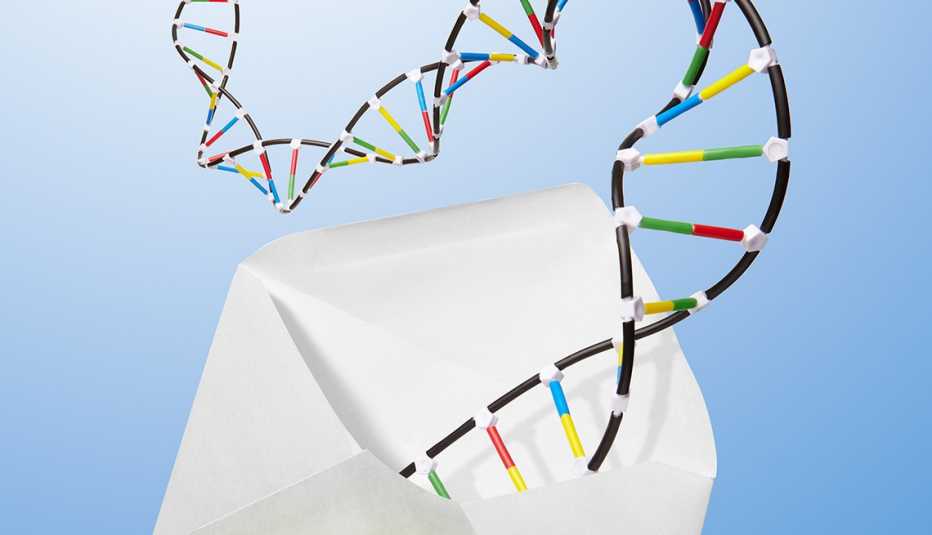AARP Hearing Center


Are you at risk of developing Parkinson’s disease? Or late-onset Alzheimer’s? For about $200 and a vial full of saliva, you can find out via a mail-in testing kit.
After a new ruling from the U.S. Food and Drug Administration (FDA), consumers can bypass doctors for the first time to learn if they have a genetic risk for 10 diseases.
Genetic testing has been in the news for years, often as part of criminal trials or paternity suits. Doctors and medical researchers have long used genetic testing to diagnose ailments and assess disease risks. But the FDA had been wary of allowing consumers to take matters into their own hands. Does the science support consistent links between certain genetic variants and diseases? And can consumers understand the key concepts in the test reports they get back?
To receive FDA approval for its direct-to-consumer (DTC) medical testing, the California company 23andMe, which previously had been limited to ancestry testing, supplied peer-reviewed studies that demonstrated links between specific genetic variants and 10 diseases, as well as data that showed a consumer comprehension rate higher than 90 percent, says Stacey Detweiler, medical affairs associate at 23andMe.
Reasons to be cautious remain. A test that shows a risk potential for a disease doesn’t mean the patient will develop that condition, says Scott R. Diehl, professor of oral biology and health informatics at Rutgers Biomedical Health Sciences in Newark, N.J.
“Most diseases have a complex causality, which means that it’s often not a single gene that results in illness but the complicated interaction between an individual’s genetic makeup and his or her environment, diet, even tobacco use,” Diehl says.
Planning for the future
Knowing your genetic predisposition does allow you to make key changes — diet, exercise, preventive medical testing and care. “DTC tests seem to intrigue people, teach people, even motivate them to improve their health,” says Robert C. Green, a professor of medicine at Harvard Medical School and geneticist at Brigham and Women’s Hospital in Boston.
Erica Ramos, president-elect of the National Society of Genetic Counselors, recommends seeking out a professional if you have a concern about a condition that may run in the family. Ask your doctor for a recommendation, or check out FindaGeneticCounselor.com. These discussions may be covered by insurance.
AARP Bulletin Executive Editor Michael Hedges took the 23andMe test and found it gave him peace of mind. “I’m relieved to know I am free of the Alzheimer’s and Parkinson’s genetic variants,” he says.
The other conditions tested are celiac disease; alpha-1 antitrypsin deficiency, which raises the risk of lung and liver disease; early-onset primary dystonia, a movement disorder; factor XI deficiency, a blood-clotting disorder; Gaucher disease type 1, an organ and tissue disorder; glucose-6-phosphate dehydrogenase deficiency, a red-blood-cell condition; hereditary hemochromatosis, an iron disorder; and hereditary thrombophilia, a blood clot disorder.
One more caveat involves privacy. U.S. laws protect consumers from being denied health insurance based on genetic tests, but “there are currently no protections in place for long-term care, disability and life insurance,” Ramos says. In some states, a life insurance application can ask if you’ve had genetic testing. “You may want to think about if you want to make changes to any policies you have before you get your test results back.”



































































More on health
How Your Smartphone Can Save Your Life
Make sure that your apps have important medical information